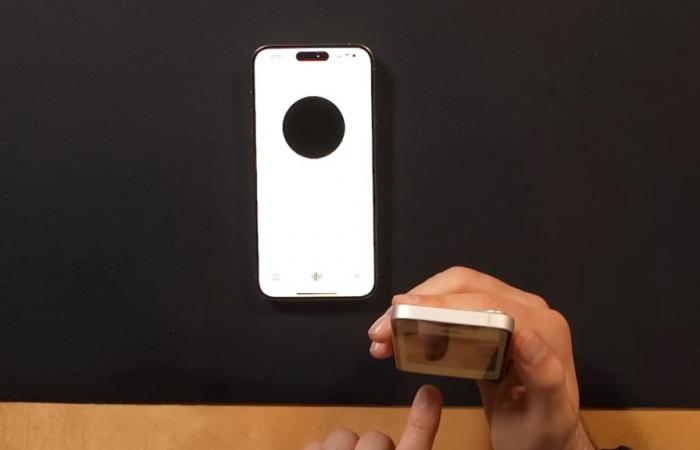Simultaneously with the launch of GPT-4o, OpenAI unveiled in May 2024 the new “voice mode” of ChatGPT, capable of holding conversations like a human being, with several emotions. Its launch has been postponed until fall 2024.
Is OpenAI’s lead artificial? On May 13, 2024, the creator of ChatGPT unveiled a voice assistant, capable of imitating voices, understanding emotions, laughing or interrupting if someone cuts him off. Its secret: it does not transform voice into text, but understands voice natively, which makes it extremely fast. Sam Altman, the boss of OpenAI, presented his software as a real version of the film Herwith a sensual and teasing voice, which conveys emotions. He would even go so far as to consider that people could fall in love with him.
Several demos of this voice have been published by OpenAI, which seems clearly ahead of the competition, starting with Google and its Astra project. When OpenAI unveiled this new voice mode, it promised that the first people would be able to try it ” in the next weeks “. A little over a month later, Sam Altman’s company announced that it had made a mistake.
“We had planned to start rolling out this feature in alpha to a small group of ChatGPT Plus users at the end of June, but we need an additional month to reach our quality requirement”indicates OpenAI in a press release published on social networks on June 25.
A test in July, a paid launch this fall for ChatGPT Voice
By postponing the launch of the new ChatGPT Voice, OpenAI is taking a risk with its paying subscribers.
Since the launch of GPT-4o, the language model is the same on the free and paid versions of ChatGPT. This means that people who pay 20 euros per month for ChatGPT Plus no longer have the advantage of benefiting from the most complete answers, even if they can hold longer conversations with the language model (and generate images) . OpenAI promised them the rapid arrival of the new voice assistant, but its prediction for the fall is not very reassuring.
This content is blocked because you have not accepted cookies and other trackers. This content is provided by YouTube.
To be able to view it, you must accept the use carried out by YouTube with your data which may be used for the following purposes: allowing you to view and share content with social media, promoting the development and improvement of products from Humanoid and its partners, display personalized advertisements to you in relation to your profile and activity, define a personalized advertising profile, measure the performance of advertisements and content on this site and measure the audience of this site (find out more more)
By clicking on “I accept all”, you consent to the aforementioned purposes for all cookies and other trackers placed by Humanoid and its partners.
You can withdraw your consent at any time. For more information, we invite you to read our Cookies Policy.
I accept everything
Manage my choices
“We will begin alpha testing with a small group of users to gather feedback and will expand based on what we learn. We expect all Plus users to have access in the fall », specifies OpenAI in its press release, making its subscribers hope that they will be chosen for this preview test. The brand highlights other new features coming to ChatGPT Plus, such as the ability to let ChatGPT see your computer screen in real time.
How to explain the postponement of ChatGPT Voice?
To justify its delay, OpenAI indicates that it is working on “improve user experience and prepare infrastructure to scale to millions of users while maintaining real-time responses”. The partnership with Apple, which will bring hundreds of millions of users to ChatGPT, may also impact its ability to manage servers. The company also indicates that it trains its voice assistant to refuse certain conversations, to avoid future controversies.
Speaking of controversies, we can also wonder what the consequences of the affair with Scarlett Johansson are. The actress had accused OpenAI of stealing her voice, despite her initial refusal to be the voice of the voice assistant. Sam Altman, CEO of OpenAI, had indeed contacted the actress to try to convince her to lend her voice to ChatGPT – in reference to the film Her in which Scarlett Johansson plays the voice synthesis software. OpenAI eventually gave up on the voice, which may force it to make new recordings. The teasing and laughing side of the voice synthesis, which mimics a close connection with its user, may have finally prompted OpenAI to be more cautious.
Do you want to know everything about the mobility of tomorrow, from electric cars to e-bikes? Subscribe now to our Watt Else newsletter!






